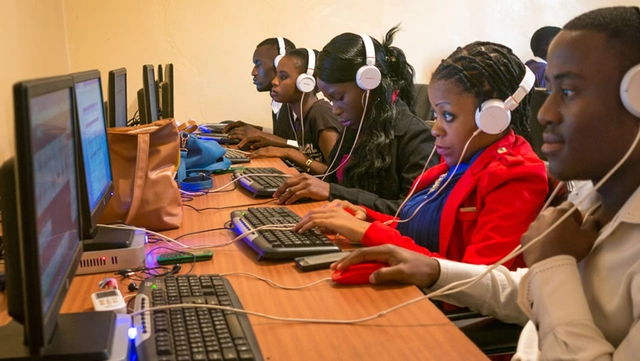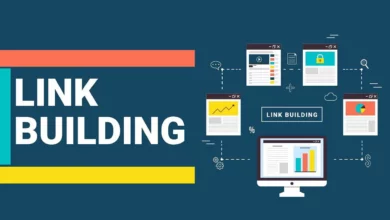15 Problems of ICT in Nigeria and Possible Solutions
Lil Ka-shing, a Hong Kong business magnate once said that “Information and communications technology unlocks the value of time, allowing and enabling multi-tasking, multi-channels, multi-this and multi-that”.
It’s quite true and agreeable, since people now get to pass on information without leaving their state, house nor country.
👉 Relocate to Canada Today!
Live, Study and Work in Canada. No Payment is Required! Hurry Now click here to Apply >> Immigrate to CanadaAlong with multi-tasking and multi-channels, comes multi-problems. The problems of information communication technology (ICT) in Nigeria can be viewed in two perspectives.

One would be the problems associated with its setup or existence while the other would be the problems associated with its existence.
The later can easily be pinpoint in our daily lives since we’ve all encountered one or more problems associated with it. Without much ado, let’s quickly and briefly discuss the problems of ICT in Nigeria and also their possible solutions.
Problems of ICT in Nigeria
1. High Cost of Establishment
ICT does not only include mobile phones, television, softwares, hardwares nor telephones. It extends to the very complicated ones like robots, networks like our telecoms, drones etc. the cost of setting up any of these is high.
Taking a telecommunication company (e.g. MTN, Airtel, Glo etc) into consideration, you will find out that these companies have branches and mast scattered everywhere in the country. That’s no little amount of money.
Many other Nigerians may have the idea and passion of doing same or even better but due to the cost of establishment, they just wave off their plans and look for something else within their reach.
2. Lack of Skilled Labour
Although Nigeria is recording an improvement in the level of computer literacy, which is majorly due to the injection of computer studies into school’s curriculum and the admittance of children into computer training institutes by parents. These still hasn’t made up for the inadequacy in computer-skilled labors.
The complex and more advanced part of ICT such as the robotics has no existence in Nigeria, partly due to the absence of such course and necessary facilities in our institutions.
👉 Relocate to Canada Today!
Live, Study and Work in Canada. No Payment is Required! Hurry Now click here to Apply >> Immigrate to CanadaSome are privileged enough to travel outside the country to acquire the needed skills while some companies see to it, that their staffs are well vested in ICT themselves.
3. Unreliable Power Supply
For the Nigerian ICT sector to witness progress not only in application but also in invention and development, power supply must be stable. It is heartbreaking that Nigeria still battles the problem of epileptic power supply up till now.
The various Telecomms mast scattered all over the countries are powered by heavy duty diesel generators which is not supposed to be so. These add to the cost of the company’s maintenance.
4. Job Loss/Unemployment
The increased application of ICT has caused many Nigerians to lose their jobs. For example, the introduction of automated services displaces the need for any manual one.
Before now, letters were sent through post-offices primarily and majorly NITEL, but now, people can send voluminous amount of letters through email, social networks, text messages or better still, a video chat or phone call.
The introduction of ICT in this case, cost the Postmen and women their jobs thus increasing the unemployment rate. ICT can also reduce the amount of workers needed for a job. Take a supermarket as an example.
A supermarket which has bar-codes bearing prices of goods attached to their products will increase the amount of checkouts done by a worker per hour.
Here, instead of the worker entering the prices manually into the computer, he or she can easily scan the barcode on such product and proceed as deemed fit.
In such a case, there obviously won’t be any need for employing more workers.
5. Insecurity
ICT has offered a big blow to insecurity. Cases of hacking are now heard here and there. People’s phones get hacked and sensitive information get stolen.
A good case of insecurity was that recorded by MTN, a South African telecommunication company.
Their service center suffered a terrible hacking which led to their out of service for almost three days. Another case is the freebrowsing hacks which allows subscribers to either browse for free or get data bundles at a cheaper cost.
6. Cybercrime/Fraud
Cybercrime is a severe adverse effect of ICT here in Nigeria. The emergence of yahoo boys as we describe them over here is as a result of ICT. These guys now get to dupe people through various means such as voice phishing, sms, phone calls, emails and worst of all, social networking sites.
They have no specificity for victims, they scam both Nigerians and foreigners alike.
7. Reduced Social/Personal Interaction
People now tend to spend more time with their TVs, video games, mobile phones and computers than they spend with their fellow humans. Some now prefer talking over the phone to having a face to face chat.
Furthermore, the emergence of work-from-home has also fostered reduced personal interaction. Humans are social animals, we require interaction with others in our daily lives; absence of interaction may cause isolation and unhappiness depending on the individual.
8. Reduced Physical Activities
The emergence of ICT also encourages people to adopt a sedentary lifestyle. Clerical works are known to involve sedentary activities but before the introduction of ICT, there were cases were physical activities were involved.
For example, before the introduction of computers and printers, a worker would write on a paper and walk down to the next office to pass on the information.
But now, one can type an information with a computer over one’s desk and it gets printed at the required office without anyone leaving their seats.
9. Privacy Infringement
With the rightful software or application, one can now pinpoint another person’s current location, home address, contact and personal details etc.
Wikipedia now gives the complete biography of people including their childhood, education and lots more which can be exploited by others.
There are now cases of leaked photos, sex tapes and secret recordings on the internet which could destroy people’s career or lives. These is common among celebrities.
10. Fostering of Immorality and Corruption
Through the internet, children can now access thousands of porn sites with their mobile phones or computers. They now get to see and practice what they are not supposed to considering their ages.
Nude pictures and videos are now taken/recorded by people of both genders and circulated through social sites which wouldn’t have been so easy without ICT.
11. Fosters Terrorism/Violence
The Boko Haram group which has and still is, terrorizing Nigeria for years now, pass on their message through videos. You see them make videos showing how they murder their victims in cold blood and send it into public circulation.
Action movies and wrestling shows now expose children and adults to violence. Some learn how to commit suicide through movies while some, gain the desire to handle a gun similarly.
Children suffer broken bones and body parts while trying to imitate a move from a wrestling show or a scene in a movie.
12. Poor Academic Performance/Examination Malpractice
Mobile phones, video games, movies, social networks (facebook, instagram, whatsapp etc) now constitutes the major source of distractions for students.
When a child spends more time on any of these than with they do with their studies, poor academic performance is to be anticipated.
Examination malpractice is also aided by ICT. Students get to see questions and answers on the internet prior to the examinations while others enter into the examination hall with their mobiles and answers to questions stored in them.
13. Adverse Effect on Health:
Adverse effect of ICT to health can be in any of the following way: poor sleeping habit, obesity, depression, eye pains, neck and head pain, social media addiction, loss of hearing due to frequent use of earpiece, loss of eyesight etc.
Due to mobile phones, people now exhibit poor sleeping habit, some would stay up all night chatting online while some watch movies all night. This adjust their sleeping habit in a wrong way.
14. Fosters Kidnapping and Deceit
In the quest of meeting up with people they encountered on social media, people get kidnapped while some get deceived and duped.
15. Environmental Pollution
Mobile phone cases and computer cases are non-biodegradable, their accumulation in the ground causes land pollution.
Possible Solutions
1. Government should work on our power supply in order to foster ICT development
2. Companies should educate their workers on the trends of ICT, seminars and overseas programmes for ICT should be considered an option
3. People should be careful on how they supply their information to websites and social apps to avoid breach of privacy.
4. Children should not be allowed to access the internet, if they must, it should be done under adult surveillance.
5. Computers and mobile phones should not be operated in a dark room to avoid excess light from getting into the eye. Amount of time spent on watching the screen should be minimized to avoid eye pains. Neck should be massaged at intervals while working on a computer. Earpiece shouldn’t be used for a long time.
6. Non-biodegradable ICT related components should be incinerated than buried.
7. Any individual suspected to be involved in duping and cybercrimes should be reported to the Police immediately.




